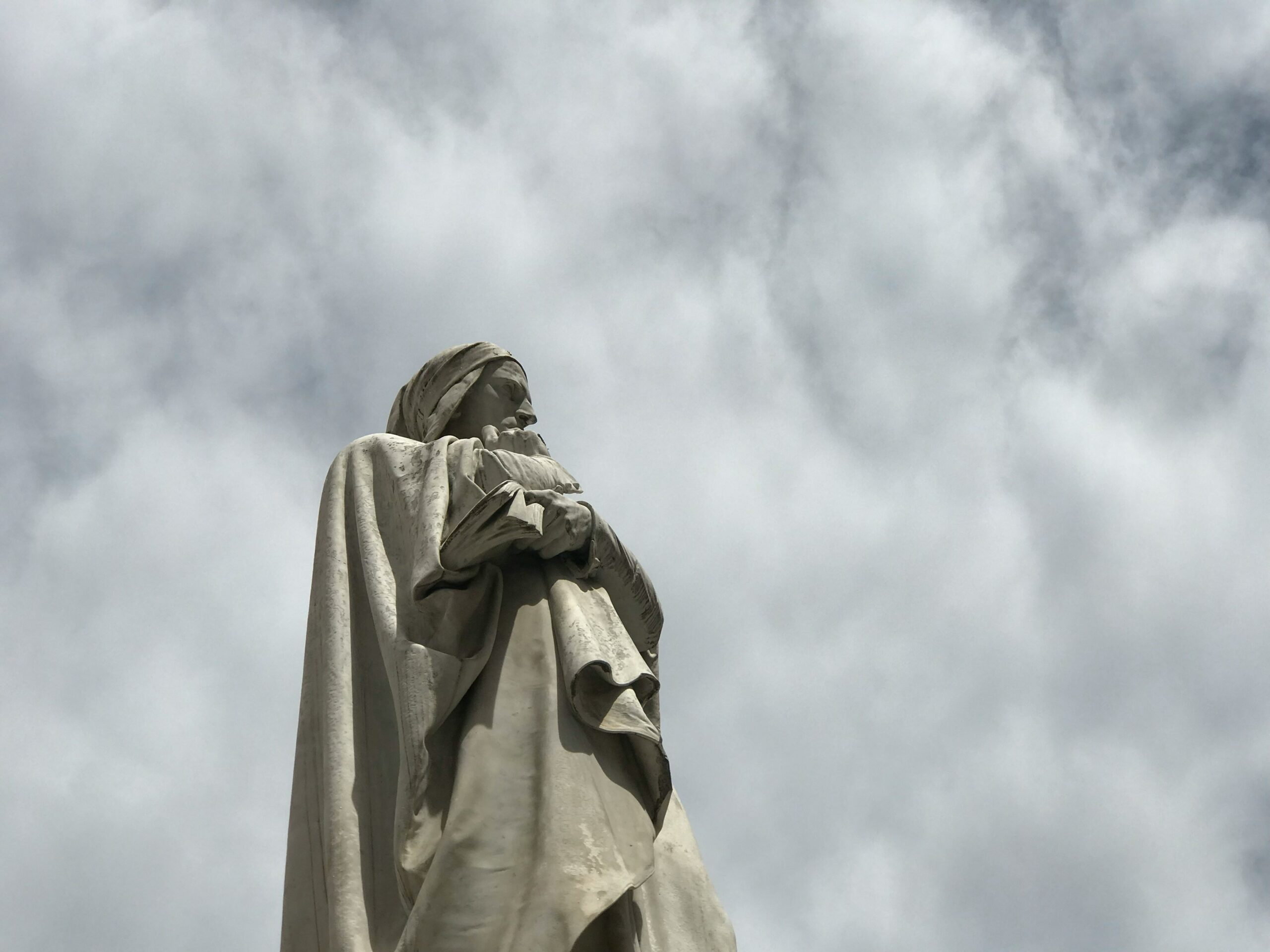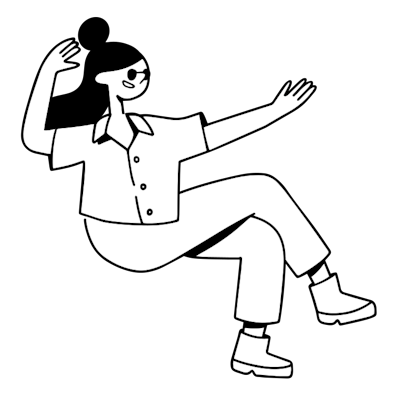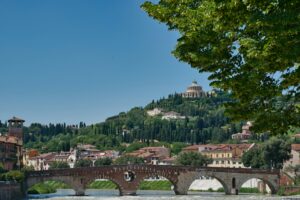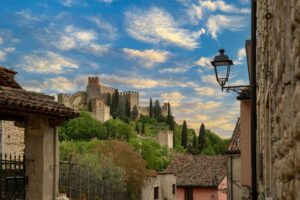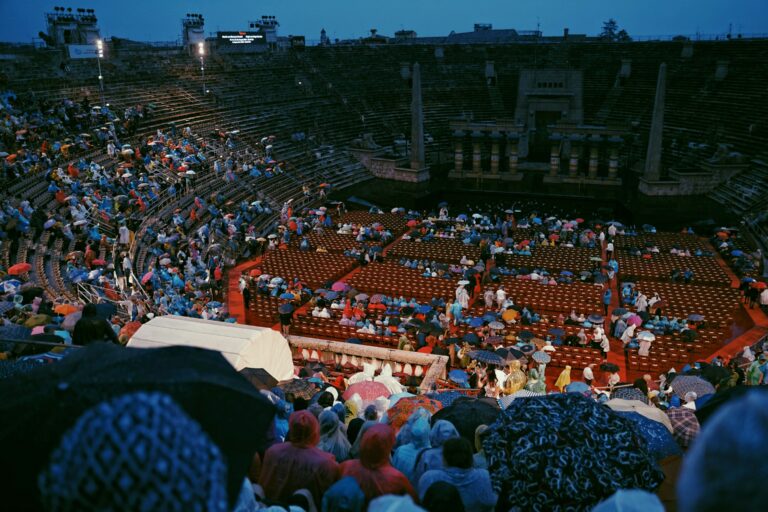Dante in Verona: Tracing the Poet’s Legacy in the City
Verona, a city of love and history, holds a special place in the story of Dante Alighieri, one of Italy’s greatest poets. Known as the “Sommo Poeta,” Dante found refuge in Verona during his exile, and the city left a profound mark on his life and work. Let’s explore the places in Verona where Dante’s legacy still resonates.
Dante’s Statue in Piazza dei Signori
One of Verona’s most iconic landmarks is the statue of Dante Alighieri in Piazza dei Signori, also known as Piazza Dante. Erected in 1865 to celebrate the 600th anniversary of his birth, the statue depicts the poet in a contemplative pose, reflecting his deep connection to the city. Surrounded by historic palaces, this piazza was the cultural and political heart of Verona during Dante’s time.
Fun Fact: Dante referred to Verona as the city of “lo scaligero,” a nod to the ruling Della Scala family who welcomed him during his exile.
The Scaliger Tombs
Adjacent to Piazza dei Signori are the Scaliger Tombs, the final resting place of the Della Scala family, who ruled Verona during the 13th and 14th centuries. Dante was particularly close to Cangrande I della Scala, a powerful and enlightened patron who supported the poet during his time in Verona. Cangrande’s tomb is a masterpiece of Gothic art and a testament to the bond between the ruler and the poet.
Dante Connection: Dante dedicated part of his Paradiso to Cangrande, praising him as a noble and generous leader.
Porta dei Borsari and Medieval Verona
Walk through Porta dei Borsari, an ancient Roman gate, and step into the Verona Dante would have known. The narrow streets of the historic center, lined with medieval buildings, evoke the atmosphere of the poet’s time. Verona’s blend of Roman, Gothic, and medieval influences likely inspired Dante’s vivid descriptions in the Divine Comedy.
Casa di Giulietta and Dante’s Influence
While Juliet’s House (Casa di Giulietta) is famously linked to Shakespeare, its connection to Dante is less well-known. The Capulets (Capuleti) mentioned in the Divine Comedy are believed to be the same family at the heart of Romeo and Juliet. This intertwining of literary traditions makes Verona a city where the stories of love and rivalry come alive.
Dante’s Words on Verona in the Divine Comedy
Dante immortalized Verona in his magnum opus, the Divine Comedy. In Paradiso (Canto XVII), he refers to his time in Verona with a mixture of gratitude and reflection, acknowledging the hospitality he received during his turbulent exile.
Visiting Verona’s Dante Trail
For literature and history enthusiasts, following Dante’s trail in Verona is a unique way to experience the city. From the bustling piazzas to quiet medieval corners, the city’s connection to the poet is tangible. Guided tours are available to help visitors uncover the historical and literary layers of Verona through Dante’s eyes.
Plan Your Dante-Inspired Visit
•Start at Piazza dei Signori to admire Dante’s statue and the Scaliger Tombs.
•Explore Porta dei Borsari and the medieval streets of Verona’s historic center.
•End your tour at Casa di Giulietta for a mix of literary and romantic history.
Pro Tip: Visit in the early morning or late afternoon to experience these sites with fewer crowds and a touch of the serene atmosphere that inspired the poet.
Discover Verona not only as a city of love but also as a city of poetry, where Dante’s legacy lives on in every stone and story.


